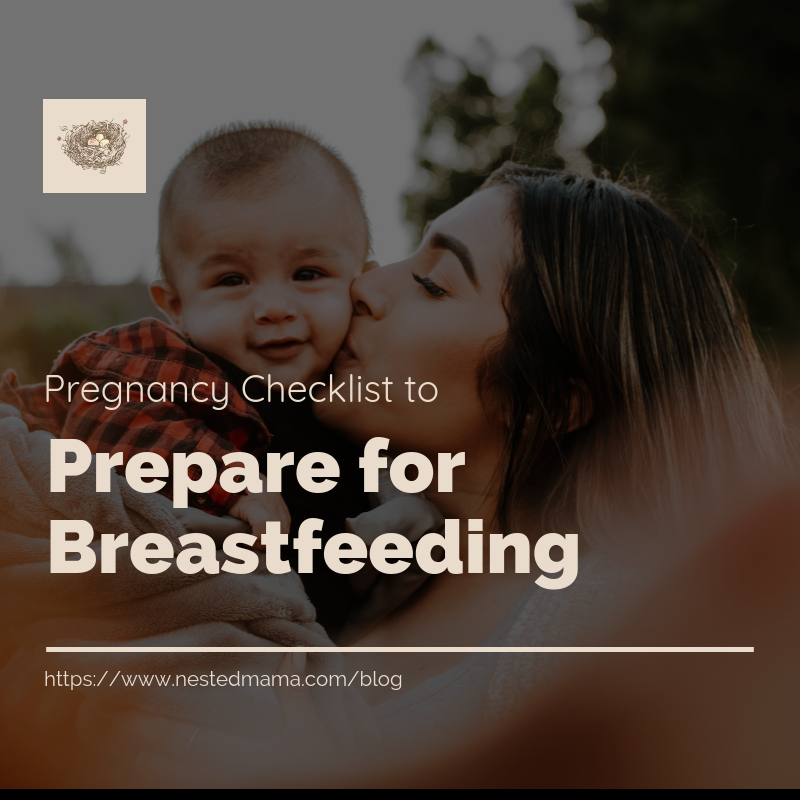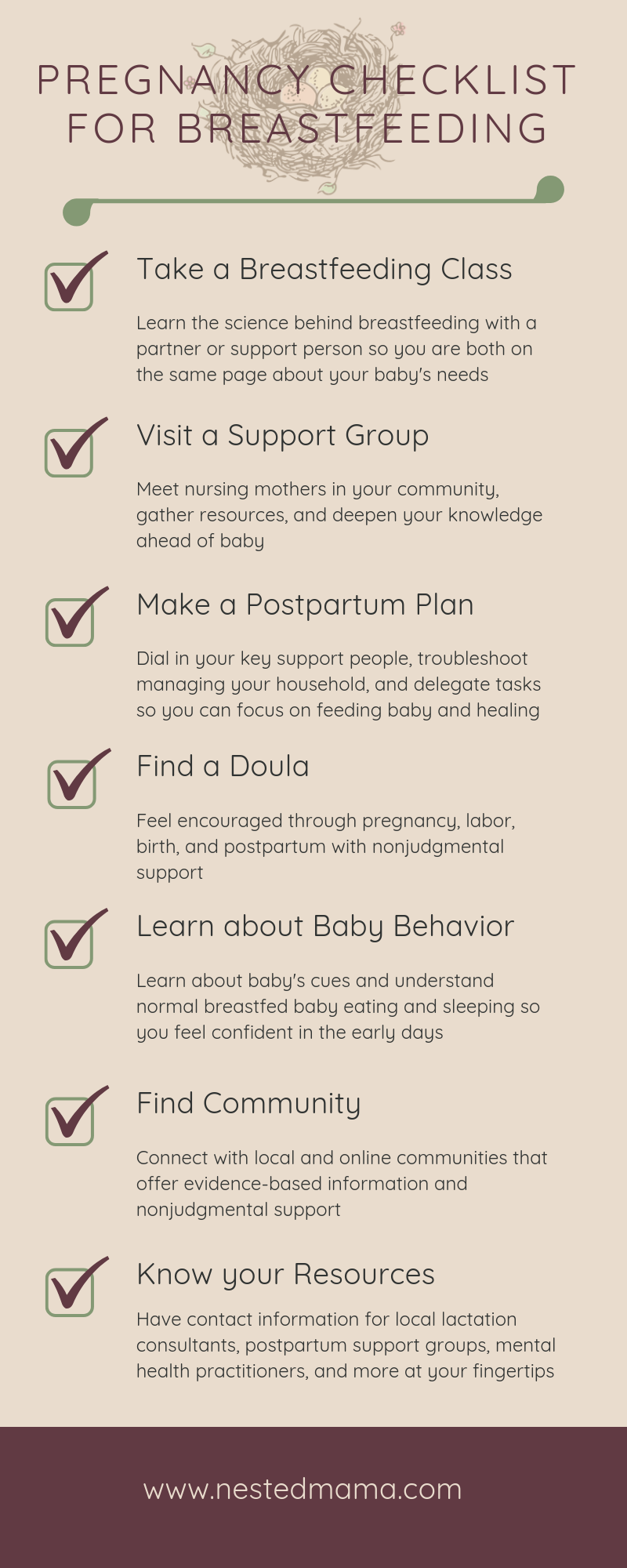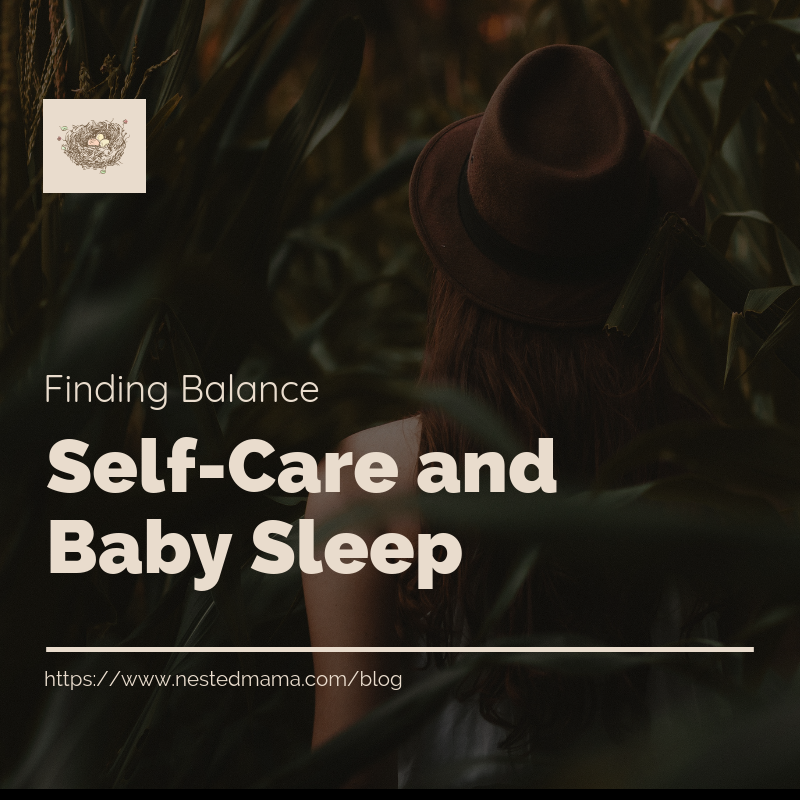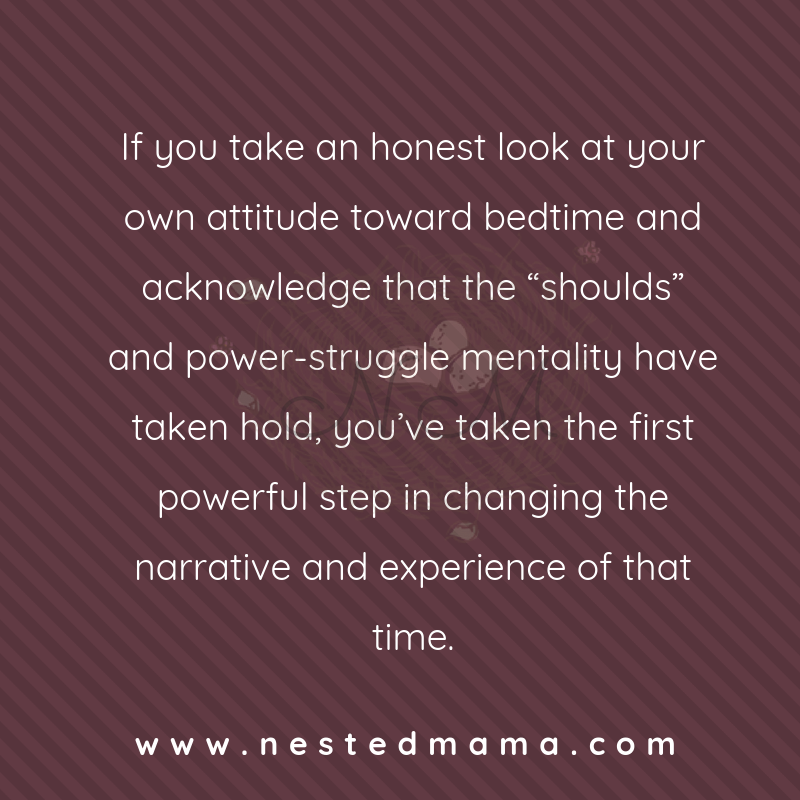|
If you are like me, when you find yourself expecting a baby you take a deep dive into all things pregnancy. Apps that tell you the size of your expectant joy in terms of fruit and vegetables alongside week by week diagrams and videos of development. Maybe you've also fallen down the rabbit hole of the birth process and the benefits and risks of different birth preferences and interventions. Podcasts of birth stories and videos of birth can fill your free time, for sure. In the months leading up to the birth of our first child, the stack of books about all things pregnancy and birth on my nightstand was a veritable rotating tower featuring all the books at the library as well as those acquired via Amazon Prime. While I'm thankful for all that learning, I now know that switching gears to learn a bit more about the breastfeeding journey I was about to embark upon would have been time well spent. To that end, I've put together a little checklist for pregnancy that can help you prepare a bit more for breastfeeding, no matter your goal. Take a Breastfeeding Class
While this seems pretty straightforward, a solid breastfeeding class should provide you the evidence-based information you need to make decisions about feeding your little one. I always recommend that the breastfeeding parent-to-be attend a class with a partner or support person so that everyone is on the same page with expectations for what feeding a baby looks like in the early days and weeks postpartum. Visit a Support Group Yes, I am suggesting you attend a support group meeting before you even have a baby. This may help you in several ways. Practically speaking, it can be really tough to get out the door with a new baby and the thought of going somewhere new with people you've never met may be truly overwhelming. By attending a breastfeeding support meeting (or more) before baby, you'll be familiar with the location, people, and atmosphere such that it may be easier for you to attend the group newly postpartum. Breastfeeding groups are also a great way to find community with other parents in the same stage, which can make the early parenting days less isolating. Make a Postpartum Plan Feeding a baby with breast milk - whether pumped or from the breast - is a full-time job in the early days. A postpartum plan allows you and your partner to put together the puzzle pieces of support that will be essential for you to focus on this wonderful but often times exhausting aspect of caring for your baby. Find a Doula Having nonjudgmental, compassionate support throughout your experience of labor, birth, and postpartum can make a difference in how you find your footing with babe. And, your doula will bring breastfeeding knowledge as well as contacts and resources if any challenge you experience are outside the doula's scope of practice. (If you aren't local to me, Doula Match is a great resource.) Learn about Baby Behavior The question "is this normal?" will likely occur frequently in the first days, weeks, and months with baby. In addition to taking a breastfeeding class, a workshop that covers developmentally normal infant sleep may take much of the guesswork out of those first days. Truly, having developmentally appropriate expectations for your child at any age will save you so much stress and help you find strategies and solutions that work for your family. Find Community In addition to the breastfeeding support groups mentioned above, searching out supportive communities before baby arrives can make finding support and friendship in this parenting journey that much simpler. For example, Hike it Baby is a great community to get moving with your little one and enjoy time in the outdoors. Know your Resources Compiling a list of resources including postpartum doulas, support groups, breastfeeding counselors, lactation consultants, and perinatal mental health professionals is a good task for those long third-trimester days when pregnancy seems to stretch on forever. You may not need to contact all or even any of these professionals, but having their contact info or recommendations from friends already in place can help you say "yes" to the support you need when you need it. Like anything else in pregnancy, birth, parenting, and well, life, your breastfeeding journey may have unexpected challenges. In fact, you may make feeding choices different from those you initially planned on. Know that you deserve respect, encouragement, and love no matter what. Looking for a breastfeeding class? Nested Mama offers group classes as well as private webinars to help you get the information you need in a way that works for you.
0 Comments
When I worked with sleep clients, I often hear them lament that because of their babies’ or toddlers’ tricky bedtimes or sleep interruptions they have no “me time.” I sympathize with this greatly, because I’ve been there, too, believing if only my baby behaved like “normal” babies that I could get the self-care time I craved. Indeed, many popular books on sleep and child rearing equate baby's sleep time with sacred alone time for the caregiver. While this sounds logical enough on the surface, in practice it sets up those whose babies have more or different needs around sleep for difficulty. And, for me, it meant self-sabotaging my happiness. When I made self-care time contingent on my baby’s sleep, I unwittingly raised the stakes of my baby’s sleep to a new level. No longer about my baby’s need for rest, now my adult need for self-care came along for the ride of any sleep frustrations. The “shoulds” in my head became louder and my feelings about sleep became bigger. You see, I’d invited my baby to a power struggle so far beyond her comprehension. Given the roller coaster that is baby and toddler sleep, even the most predictable of sleepers will have tricky spots and interruptions. My expectations were ahead of her abilities and my frustrations loomed large. This mindset often proves even more challenging in the toddler years, as little ones become more vocal about their many needs at bedtime. Asking for one more drink, one more hug, or parental reassurance can turn the implicit power struggle of baby sleep to a very explicit one. When I work one-on-one with parents, I often hear that they feel like their self-care time is held hostage by their little one’s ever so vocal and pressing nighttime desires. As a result, bedtime becomes a time of stress and conflict rather than ease and connection. Imagine having an argument with your partner or a beloved family member and then trying to fall asleep. How long do you think it would take you to drift off? When we create a power struggle that not only includes bedtime but a narrative around how and when we can care for ourselves, we set ourselves up for the opposite of joy. Bedtime as a battle means everyone’s stress level is high and rest and relaxation is that much harder to achieve for all parties involved. So, what can we do when we find we’ve fallen into this sleep-time trap? Here are a few quick tips to dissolve the power struggle and find more room for self-care. Change your mindset
If you take an honest look at your own attitude toward bedtime and acknowledge that the “shoulds” and power-struggle mentality have taken hold, you’ve take the first powerful step in changing the narrative and experience of that time. Hold limits with love, find ease and connection in closeness with your child, and turn sleep time into one that feels good for everyone involved. It may not immediately equal “one tuck and done,” but know that gentle transitions and growth are always on the horizon. Schedule it in One powerful way to change your narrative around sleep is to change what is at stake. Instead of making your yoga practice contingent on naptime, schedule a class or two a week in your calendar that don’t depend on your baby’s sleep for you to attend. Communicate clearly with your partner about your needs, dial in your support people, exchange childcare with a friends so you both get the time you need - basically, separate the baby sleep = self-care equation by making your self-care a priority. Find joy together Sometimes, especially with tiny ones, it is possible to make progress toward self-care and sleep at the same time. Maybe you enjoy a quiet coffee obtained via drive-though after errands because you know little one will nap a bit in the car. Maybe your little one sleeps best for naps in a carrier, so you leverage that time to take a walk, a hike, or a babywearing dance class. Look for parent and baby classes in your community that give you more of what you love while being with your little one. Get support Sometimes the thought of changing the narrative, making gentle transitions, or finding collaborative solutions that work for the family may seem completely out of reach. Here, a one-on-one consultation with an infant sleep educator may be just what you need to refocus and have a plan to help your whole family flourish. Looking to make some gentle changes or want support as you switch up the narrative around your experience of baby and toddler sleep? Schedule a free 15 min discovery call to see if Nested Mama services are the right fit for your family. |
AuthorJohanna received a Ph.D. in English in 2014. Now a postpartum doula and educator of childbirth, breastfeeding, and infant sleep, she blogs about pregnancy, birth, postpartum, and parenting. Archives
February 2021
Categories
All
|
Serving Iowa City, Cedar Rapids, and surrounding Corridor communities
Copyright © 2018






 RSS Feed
RSS Feed